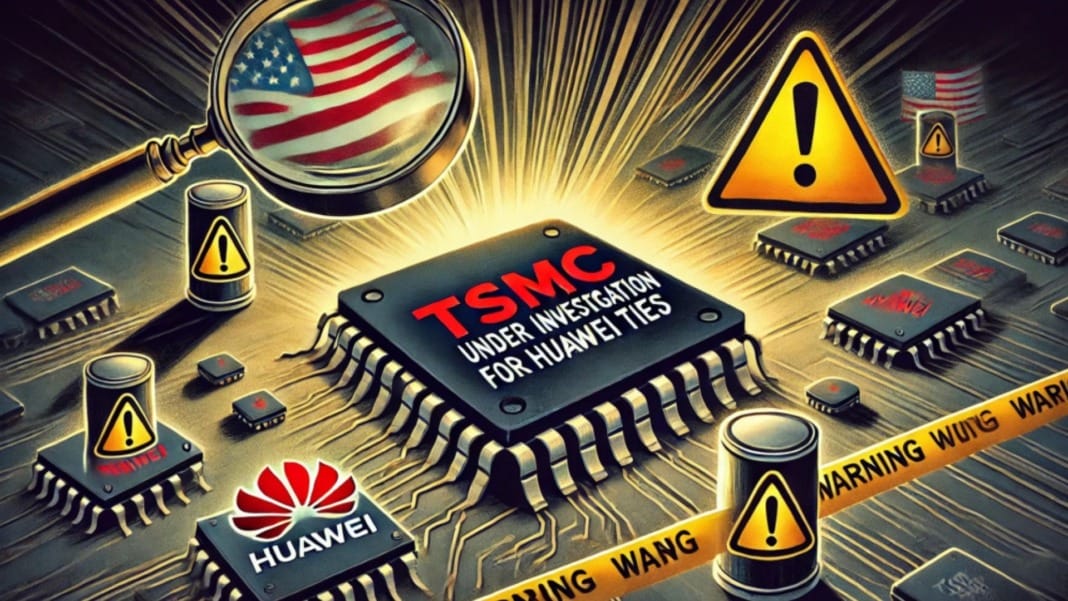The US Department of Commerce is investigating Taiwan Semiconductor Manufacturing Company (TSMC) for allegedly selling chips to the Chinese tech giant Huawei. The inquiry is focused on determining whether TSMC supplied Huawei with mobile and AI chips, either directly or through other companies.
Investigation into Huawei Kirin 9000s
Reports suggest that the US Commerce Department recently contacted TSMC to investigate if the company had any involvement in producing or supplying chips for Huawei’s Kirin 9000s. These chips are key components in Huawei’s latest flagship devices, including the Mate 60 series, the Mate X foldable smartphone, and the Pocket 2 flip phone. According to the investigation, the Kirin 9000s are believed to be manufactured by SMIC, a partially state-owned Chinese semiconductor company.
SMIC has faced scrutiny over its ties to Huawei, especially as its chips power some of Huawei’s most advanced devices. The Kirin 9000s chip is seen as a significant achievement for Huawei, particularly after US sanctions barred it from accessing American-made technology.
US export ban and its impact
The heart of the investigation revolves around the US export restrictions imposed in 2020. These regulations prohibit any chip maker using US software or technology from selling their products to Huawei unless they receive special approval from the US government. The restrictions were initially implemented to curb Huawei’s access to advanced chips that could support its 5G networks and other high-tech developments.
The ban was later expanded to include SMIC after the US determined an “unacceptable risk” that SMIC’s equipment could be used for Chinese military purposes. As a result, any involvement of TSMC in providing chips to Huawei would breach these export restrictions, triggering the current investigation.
TSMC, the world’s largest contract chip manufacturer, produces chips for various companies, including Apple, AMD, and NVIDIA. The company uses technology from American firms, so it must comply with US export laws. Given TSMC’s global dominance in semiconductor manufacturing, the outcome of this investigation could have wide-reaching consequences for both the company and its clients.
TSMC’s response to the allegations
In response to these claims, TSMC issued an official statement reiterating its commitment to following all applicable laws. The company stated it “will take prompt action to ensure compliance, including conducting investigations and proactively communicating with relevant parties, including customers and regulatory authorities, as necessary.” TSMC has maintained that it adheres strictly to international regulations, including the US export ban.
While the investigation is still in its early stages, it highlights the growing tension between the US and China over technology and the global semiconductor industry. The case against TSMC could further strain relations between the two superpowers and has the potential to disrupt supply chains across the tech industry.
As TSMC cooperates with the investigation, it remains unclear what, if any, penalties the company might face if found in violation of US export laws. For now, the world’s leading chip maker continues to navigate the complex geopolitical landscape surrounding its industry.





